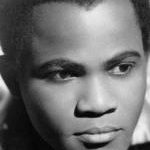 Shock Corridor is one of the greatest films of the 1960s — perhaps one of the greatest films ever. It is widely regarded as a great film by a certain kind of cinephilia — my kind — the kind who loves substance and style done in an idiosyncratic way — where more creativity was spent than money. But everyone should love it. And I think I understand the reason that it doesn’t get as much respect as it deserves: it is seen as a message film. While it is indeed a message film, it is far more than that. And it is not primarily a message film regardless.
Shock Corridor is one of the greatest films of the 1960s — perhaps one of the greatest films ever. It is widely regarded as a great film by a certain kind of cinephilia — my kind — the kind who loves substance and style done in an idiosyncratic way — where more creativity was spent than money. But everyone should love it. And I think I understand the reason that it doesn’t get as much respect as it deserves: it is seen as a message film. While it is indeed a message film, it is far more than that. And it is not primarily a message film regardless.
The reason people think of Shock Corridor as a message film is because it was written, produced, and directed by Samuel Fuller. And he is still seen as primarily a message filmmaker, even while people applaud his great technique and brilliant eye. It’s probably because he was liberal and anti-war. John Milius is never considered a “message filmmaker,” even though his films are noted for pushing messages clumsily. But he’s a conservative. He was never in a war. He did not experience anything as life changing as the liberation of a concentration camp at the end of World War II, as Fuller did.[1] Apparently, we are supposed to dismiss only films with messages when they are trying to make the world better.
Shock Corridor is a pure Greek tragedy. And it needs to be viewed that way. The main character is Johnny Barrett, a journalist on a mission for fame in the form of a Pulitzer Prize. If that sounds like an ignoble beginning for movie about a reporter, it is. Barrett is not very likable, even though what he wants to do to get the prize is noble. There was recently a murder at the local insane asylum. But because the witnesses are all insane, as was the victim, the police just let the case slide. So his intention is to pass for crazy, get inside, and solve the case. What could go wrong?
Barrett’s stripper girlfriend, Cathy, is critical to the plan. But she thinks it is literally crazy for Barrett to do this. She alone sees that Barrett’s goal of the Pulitzer is superficial and wishes him just to have a regular life with her. So, posing as Barrett’s sister throughout the film, she acts as the conscience of the film and as the representative of the audience. Because Barrett is crazy — not so much in his actions, but in his desires. To risk your life to help others is one thing, but to risk your life for something as meaningless as fame not.
Once inside the hospital, Barrett is in the world of Homer — specifically, The Odyssey. There are three patients that he must meet and penetrate the fog of their insanity. The first is Stuart, scarred by his captivity in the Korean War, he now imagines that he is Confederate General JEB Stuart. Then there is Trent, an African American whose experience being one of the young people to desegregate a southern college make him now believes he is a KKK member who starts race riots in the hospital. And finally, there is Boden, a scientists so filled with guilt about his work on nuclear weapons that he has reverted to a child.
In the brief periods of clarity, each man takes Barrett a step closer to finding the murderer. And in the end, he finds the murderer, makes him confess, and writes his story that wins the Pulitzer Prize. But all along, Barrett’s sanity has been slowly slipping away. After achieving his goal, he goes cantatonic. The film ends with Cathy sobbing as she tries to get him to react to her. And we see the hallway that started the beginning of the film, although it is filled with patients now — Barrett included. And the film closes with the Euripides’ quote it began with, “Whom God wishes to destroy he first makes mad.”[2]
Even today, the ending is extremely powerful. The solving of the mystery doesn’t matter. Like a Classical tragedy, Barrett is doomed from the start by his own hubris and lack of depth. We are left, as is Cathy, to watch helpless as the events play themselves out. Shock Corridor is a great film that must be seen.
[1] To be fair, John Milius apparently wanted to join the army but was refused for medical reasons. On the question of wanting to go to war, I refer you to this quote. But I would hope that he would have a more mature worldview had he gone to war.
[2] It is not a Euripides quote. But it was probably a common saying from that time and place.






When I think of a film as a “message movie,” I think that it uses stylized characterizations of human behavior to make a point. That’s perfectly valid in art. Rod Serling was a master at this. So was Shaw.
Is Fuller’s art of a different kind than that of Renoir, Jean Vigo, early Truffaut (I guess I’m going French with this!) Yes. And Ibsen’s art was different than Shaw’s.
It’s probably not right to bring Shaw into the conversation, since he was something else — a message moralist with a terrific sense of humor. Fuller, Serling, Sidney Lumet, Alan Pakula, etc. are not funny. But they’re in the same league as far as being memorable. Nobody forgets “Shock Corridor,” “Fail-Safe,” “All The President’s Men” or those amazing “Zone”s once they’ve seen them. I recently linked elsewhere to the Zone episode “An Occurrence At Owl Creek Bridge” (where the guy being hung dreams he escapes, then gets hung) and a bunch of young people said that episode shook them to the core. It was made 20 years before they were born (the story, written 100 years before.) And it still works.
The strongest stuff in “Corridor” are the monologues by patients (prisoners) reliving the experiences that drove them mad. The rocket scientist’s story is good, but common for the era — everybody hated nuke missiles, correctly so. The former student who couldn’t handle being the only black kid at a white school is astonishingly powerful. New movies about the civil-rights era, like “42” and “The Butler,” don’t dare express the racism “Shock Corridor” does with that character.
I don’t know how to take the confederate general who went mad in Korea. I’m assuming — since he responds so strongly to the reporter saying he’s Nathan Bedford Forrest — that he’s Fuller’s take on how a bigoted upbringing deranges you. And yet Fuller has him being brainwashed by Communists. Aren’t the criticisms of American society that those Communists would use fairly similar to the criticisms Fuller was making? Was that a topical plot choice, about the same stories of “brainwashing” which inspired “The Manchurian Candidate”? Interesting to think about.
Good point about Rod Serling.
I think that Fuller was different in the sense that his palette is a very definable 1950s genre film. And that’s largely why he isn’t a bigger deal.
For the record: Fail Safe deeply scarred me when as a youth so I refuse to engage with it. It calls out to me from time to time, but thus far I have been strong. Sophie’s Choice was nothing compared to it.
I don’t think I’ve seen the TZ “An Occurrence At Owl Creek Bridge.” I know it from an Italian short film or something. I will have to look into that. It is totally TZ, though. If I’m thinking of the right story: guy’s being hang and the rope breaks. He escapes and makes it home. He’s about to hug his wife and… Ugh! Is that it?
Those three are the touchstones of the film — all done brilliantly. All the actors are great. The only one I knew before was Gene Evans. I think what’s going on with our Confederate general is that the bigotry of the country made him an easy target for the commies, so when he was released, he responds to his own treason by thinking himself a more comfortable traitor. I will admit, that one is a bit too complicated to work. Fuller should have fixed that one. (Perhaps a rich man gone insane due to his privilege? But then why would he be in that dump?) Also, he’d already dealt with both racism and war. But I think those were the two issues that Fuller cared most about. It is, however, interesting that the treason of the Confederates has been mostly wiped away. So it really was more acceptable to be that kind of traitor.
I still maintain the core of the film is Cathy. I love Constance Towers, who was great in Fuller’s The Naked Kiss. That one is also worth watching, although it is a tad precious.
I watched a filmed stage version of “Fail-Safe” with the SO, thinking it’d be less traumatic than the original. Nope; it was still horrifying. The SO’s take was “why did you make me watch that?”
The Italian short film is that “Zone” episode. It’s the one you remember. It’s a very dark thing and maybe not helpful to look at again, but I loved Serling’s intro to it. He gives huge props to a short foreign film.
There’s an interview with Towers on the Criterion “Corridor” DVD. Apparently she got her start in John Ford westerns, and Ford hung around the set of “Corridor” to oversee how she did. Ford and Fuller got along well. I’m not a huge Ford fan. but “The Searchers” pretty wowed me. It wowed Godard, too, so I’m not in poor company there.
Great observation about Confederate treason. That’s probably what Fuller was aiming at — how the stories about soldiers going over to the Communists in Korea demonized them as monsters, while a sizable chunk of America regarded actual insurrectionists who killed hundreds of thousands of people in a war as semi-saints.
It could have been made clearer. It’s an effective sequence, even before you pointed out what I missed. The color footage of average Japanese people makes one remember our nukes very strongly, and I’d be surprised if Fuller wan’t aware of our escalation in Vietnam. It’s almost like Asians were the Muslims of 1963 — the terrifying inhuman monsters any violence was justified against.
I may have come upon that with the intro snipped out. I’ll look for it.
The Criterion Collection Shock Corridor I watched didn’t have anything on it. Did yours have two DVDs? It is possible the other one was lost. It was a library copy.
I like Ford well enough. But I think he is overrated. He’s a pretty simple filmmaker, but he has a good eye. I’m afraid that the New Wave filmmakers fetishized him. (But not like they did Hitchcock!) But I can see Ford and Fuller getting along. Their approach to the art is similar, even if Ford doesn’t normally have that much to say. I suspect that Fuller would find me ridiculous in my analysis of his film here.
” Like a Classical tragedy, Barrett is doomed from the start by his own hubris and lack of depth.”
Reminds me of the film 12 Monkeys. Both for the theme of insanity and the tragedy that cannot be avoided. And checking Wikipedia, yes it was directed by Terry Gilliam.
12 Monkeys is one of my favorite films. I still watch it a lot. It just goes to show what Gilliam can do when he has an outstanding script.
The movie is on Hulu Plus so I am going to watch it so you can be happy someone listened to a recommendation.
Actually, I’m pretty sure that James already did. It’s possible he had already seen it though. You might find it a bit slow, given it was made over 50 years ago. But let me know what you think.
It was not too slow (Heaven’s Gate was slow. Secretary on the second viewing was slow.)
I was kind of surprised at how much like a play it was. A third of the way through I was “this is a play. Weird.” It was not the greatest film in my never humble opinion but I think for the time and place, it was pretty good. If you want artistic commentary, I don’t know enough about films to make any however I can say it was a two thirds of the way before I grabbed my cell phone movie. That is pretty good these days to keep my attention that long.
I’m glad you enjoyed it (if that’s the right word). It’s surprising that a young independent filmmaker hasn’t remade the film. There are two things that date it. First is the too-clear psychosis of the patients. Second is the lighting style that seems too much like television lighting now. Otherwise, it’s quite amazing. Another aspect of it that’s important is the strong female lead. Constance Towers also starred in The Naked Kiss — another great Fuller film. He’s better considered in total rather than by any film. But the main thing is that he cares about humans. This alone is more than you can say for 99% of filmmakers. He also, coming out of World War II, believed in evil. I’m not as much in agreement with that. But it really helped in fuses his social consciousness with genre film. He’s very much like Russ Meyer, but whereas Meyer cared most about buxom women, Fuller cared about justice. But I certainly think that Shock Corridor holds up as well as the big budget Cleopatra, which was released the same year.